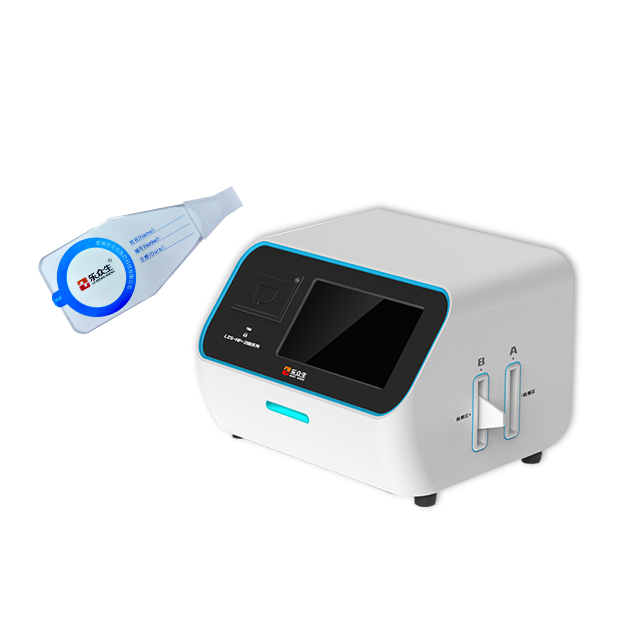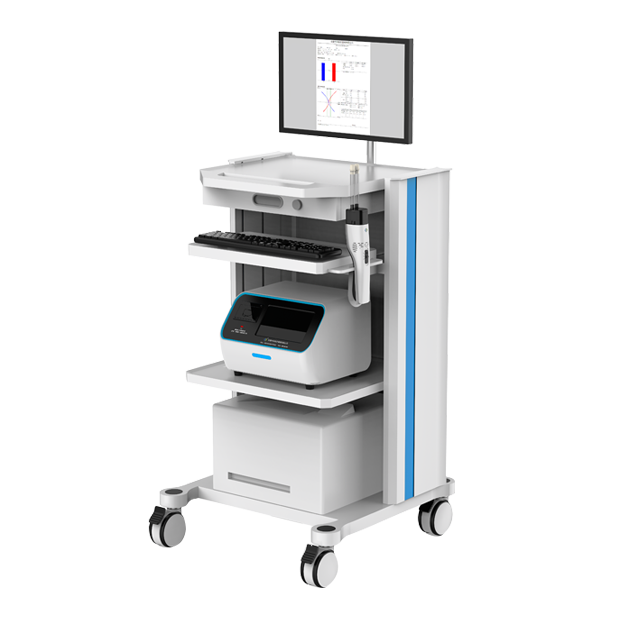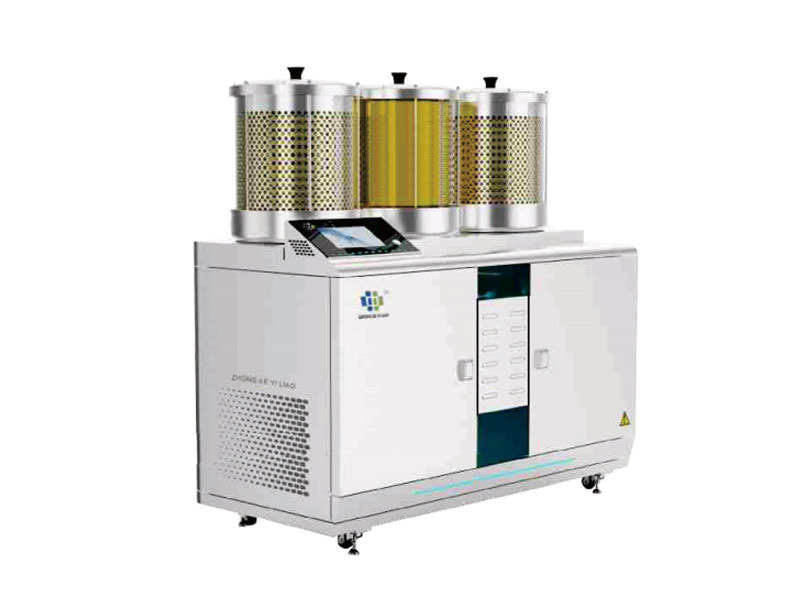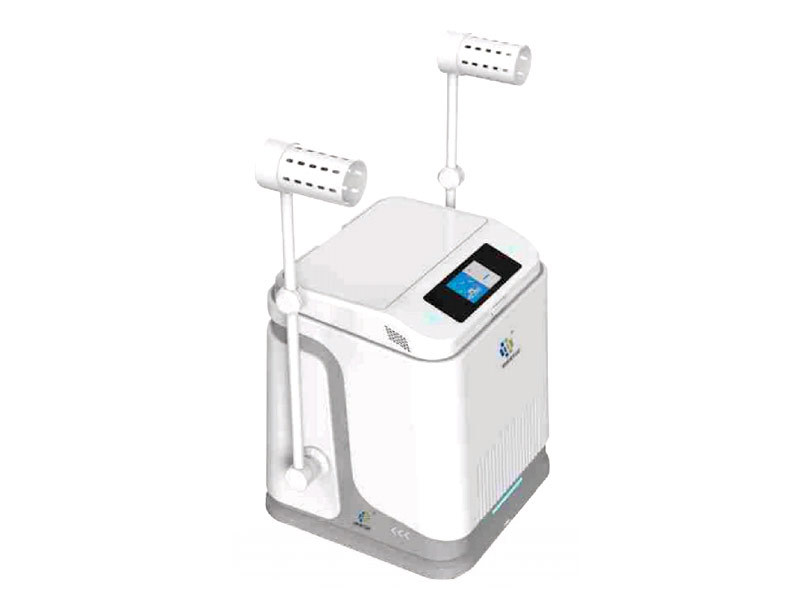
- Description
-
PRODUCT INTRODUCTION
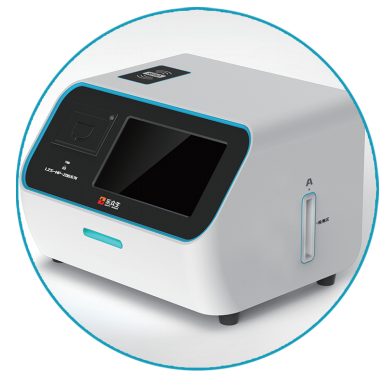
LZS-HP-200A
This instrument can complete the detection of Helicobacter pylori within 250 seconds with an accuracy of over 95%. The examinee only needs to blow air into our breath collection card to complete the test, no need for blood drawing, no pain, and with a fast results. It is an essential examination item in physical examination centers.
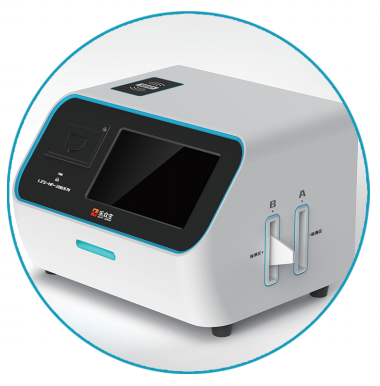
LZS-HP-200B
This model can simultaneously complete the detection of two Helicobacter pylori samples within 250 seconds, making the detection process more efficient and suitable for larger physical examination centers.
PRODUCT ADVANTAGES
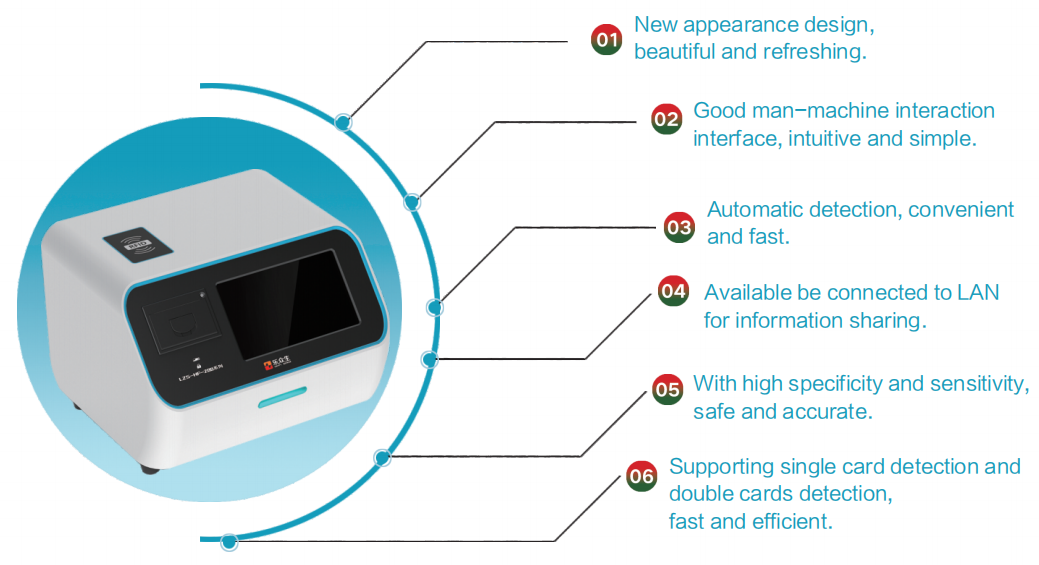
JUDGMENT OF TEST RESULTS
1. Negative: If DPM≤99, Hp (-), it indicates an absence of Helicobacter pylori (Hp) infection.
2. Positive: If 99<DPM≤149, Hp, it indicates an infection with Hp.
3. Positive+: If 149<DPM≤499, Hp(+), it indicates an infection with Hp.
4. Positive++: If 499<DPM≤1499, Hp(++), it indicates an infection with Hp.
5. Positive+++: If 1499<DPM≤2499, Hp(+++), it indicates an infection with Hp.
6. Positive++++: If DPM>2499, Hp(++++), it indicates an infection with Hp.
LZS-HP-200 SERIES HP TEST METHOD
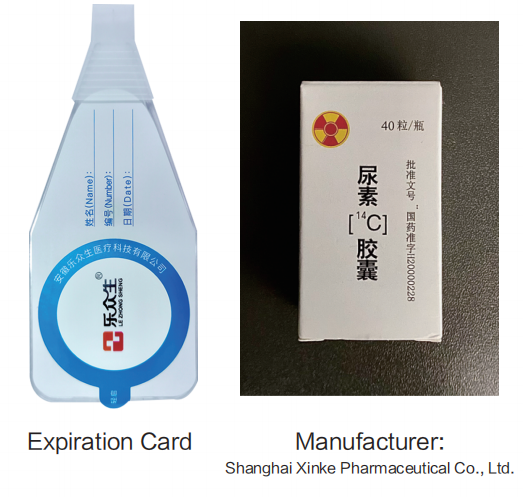
1.The person to be tested should perform the 14C- urea breath test on an empty stomach and is required to rinse the mouth before being tested;
2.Take urea [14C] capsules with appropriate amount of warm water, and then sit still for about 15 minutes;
3.Blow into a dedicated expiration card and collect exhalations;
4.Insert the expiration card with the exhalations of the person to be tested into this series of detectors, and then the diagnostic results will be displayed and printed automatically after 250 seconds;
5.The detector is equipped with a graphic printing workstation that can be connected to a standard printer to print reports in a standard format. It also supports customers to customize the format of the printed pages according tobias and preference.
MATTERS NEEDING ATTENTION
1.When collecting exhalations, please blow gently. You can change your breath, but it is strictly forbidden to breathe backwards.
2.It is recommended that this test be done in the morning, and the person to be tested should fast or fast for 4-6 hours and rinse the mouth before the test.
3.The following factors may have an impact on the test results:
(1)HP-sensitive drugs such as antibiotics, bismuth preparations, and proton pump inhibitors were used within the last month.
(2)There was a history of upper gastrointestinal bleeding within the last week.
(3)Partial gastrectomy may lead to rapid depletion of isotopes from the stomach or a lack of acid in the patient’sstomach.
(4)Rupture of the capsule in the mouth can affect the test results.
4.Before a child being tested, it must be confirmed that the child is able to swallow the capsule and is able to blow through the mouthpiece.
5.Warm tips: pregnant and lactating women should not accept this test.
DETECTION SECURITY
*Urea [14C] capsules containing 1 microcurie are with minimal radiation effects for in vivo diagnosis of Helicobacter pylori infection. From a radiation protection point of view, the test is safe for the environment, the patient as well as the doctor. The waste generated during the diagnostic process can be disposed of as general clinical waste.
POPULAR SCIENCE WORLD
What is Helicobacter pylori?
Helicobacter pylori (Hp) is a Gram-negative bacterium that resides in the human gastric mucosa. In 1983, Marshall et al. cultured Hp from human gastric mucosal tissue and concluded that is the causative agent of chronic gastritis and peptic ulcer. Able to survive in high concentrations of stomach acid, Hp can not only coat the gastric mucosa, but can even cross the protective barrier of the stomach and cause lesions in the stomach.

What are the dangers of Helicobacter pylori?
● Class 1 carcinogen of gastric cancer, being able to destroy the normal structure and function of the stomach.
● Leading to a decrease or lack of stomach acid.
● Leading to acute and chronic gastritis.
● Leading to peptic ulcers and ulcer syndrome.
● Leading to gastric adenocarcinoma.
Key words:
Helicobacter Pylori Detector


